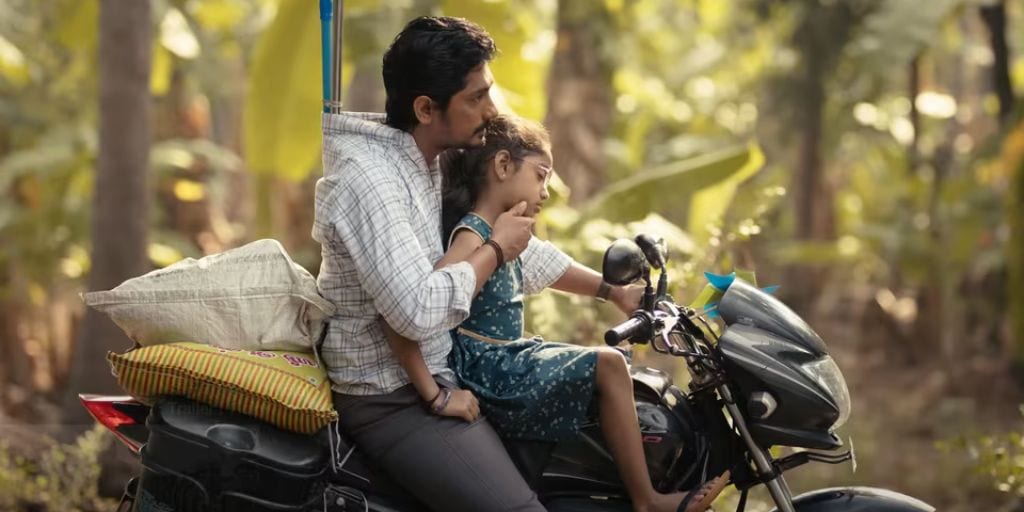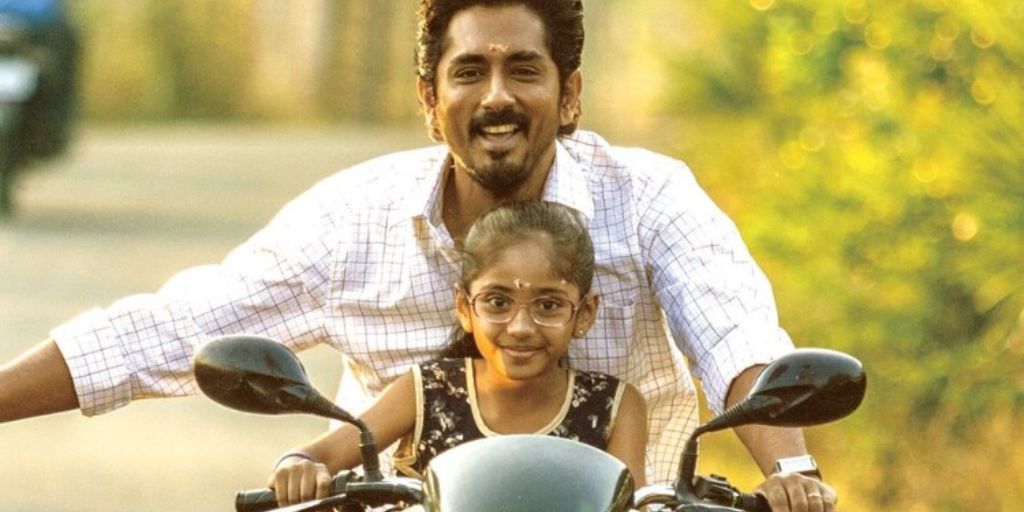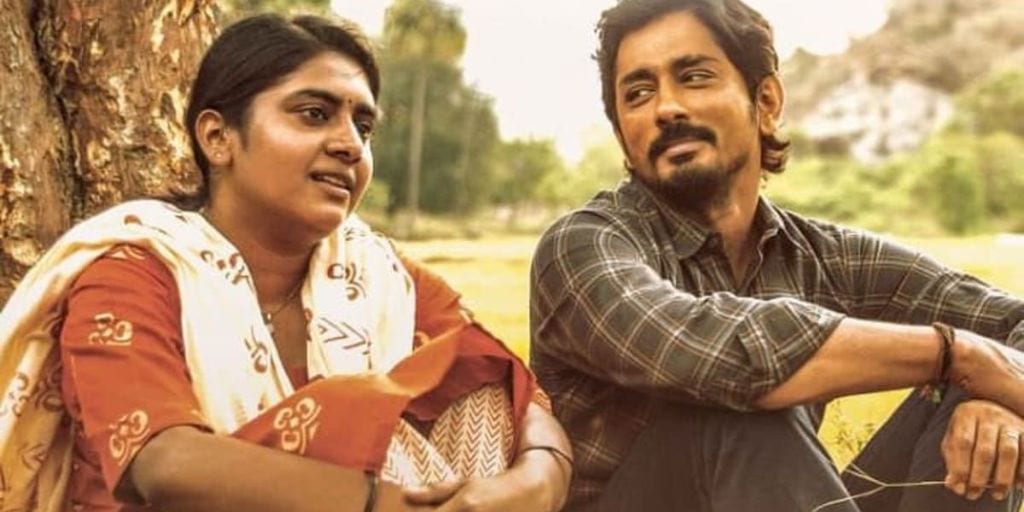With its compelling plot and outstanding performances, S. U. Arun Kumar’s highly anticipated Tamil drama thriller Chithha, which Siddharth produced, has moved and captivated audiences. This picture, which debuted in theatres on September 28, 2023, has been widely praised by critics and is expected to be an economic success.
Disney Plus Hotstar offers the option to stream it. The story develops as government employee Eesu (Siddharth), who works in the sanitation department, learns to deal with life’s challenges. He makes an effort to strike a balance between his duties to his eight-year-old niece Sundari (Sahasra Sree) and his sister-in-law.
The film offers viewers feel-good moments as it skillfully depicts the warmth in the relationship between Eesu and Sundari. Warmth fills the pictures thanks to Balaji Subramanyam’s cinematography, which heightens the overall emotional impact.
A seemingly harmless idea to explore a wooded region after school hours by Ponni, the niece of Eeswaran’s close friend Vadivelu, and Sundari takes a sinister turn. Sundari leaves Ponni because she is afraid. Ponni’s father accuses Eeswaran of assault the following day.

But after an investigation by undercover police officer Vadivelu, who finds Eeswaran’s innocence, a sincere apology follows. This occurrence establishes the framework for the later happenings that form Chithha’s climax.
Chitta Movie Ending Explained
When Sundari falls prey to a well-known paedophile, the story takes a very different turn. This sets Eeswaran on a never-ending mission to rescue his cherished niece. The film explores the horrifying realities of abuse against children. It accomplishes this by meticulously illustrating the suffering Sundari experiences at the hands of her abductor.
As he challenges the kidnapper and eventually saves Sundari, Eeswaran’s tenacity and fortitude serve as his motivators. The sensitive handling of the sequences showing Sundari’s abuse has a strong effect on the viewer. Eeswaran learns that the kidnapper has been captured by the police as the plot thickens.
But in a startling turn of events, Ponni’s abuser is also identified as the guilty party. Driven by a combination of fury and fairness, Eeswaran decides to take matters into his own hands. He then approaches the abuser and strikes them fatally. Beyond the bounds of traditional justice, the act is a visceral embodiment of Eeswaran’s desire to defend those he cares about.
In the middle of the gripping plot, Eeswaran’s lover Shakti talks candidly about her terrible history and her assault experience. This discovery deepens the story by highlighting the widespread nature of abuse and the value of compassion and understanding.
In a heartbreaking scene, Shakti begs Eeswaran to put Sundari’s needs first and to give up his thirst for retribution. Acknowledging the wisdom in her remarks, Eeswaran consents to give up his quest for revenge and commits himself to Sundari’s welfare.
A time leap at the end of the climax provides an insight into the life of Eeswaran and Sundari one year later. When the police find a burned corpse, it is quite likely that Eeswaran took matters into his own hands once more because he knew who the paedophile was.
In addition to its gripping story, Chithha is notable for its examination of difficult subjects like justice, atonement, and the effects of trauma. With its deft integration of contemplative interludes and tense episodes, the movie leaves viewers with a lasting emotional impact that lasts long after the credits have rolled.

Chithha proves to be a potent cinematic experience that goes beyond the bounds of conventional storytelling as audiences struggle with the nuances of the resolution. The film’s climactic catharsis could have easily devolved into melodrama given its gloomy themes, but Arun Kumar isn’t concerned with playing to your emotions in predictable or convenient ways.
For example, a victim of sexual abuse does not instantly confide in Eeswaran after speaking with him. We are kept waiting since she finds his touch unpleasant and won’t discuss what happened to her. Then, when she turns to go, we witness her hobbling a little, and that alone was enough to break my heart into a million pieces—kind of like the glass shards that Eeswaran uses to craft a fairly special weapon, I suppose.
Whether it’s the concept of this knife or the cunning and depravity of the movie’s antagonist, it’s obvious that Arun Kumar would excel in that genre of filmmaking if he avoided the light and instead lived in the shadows.




